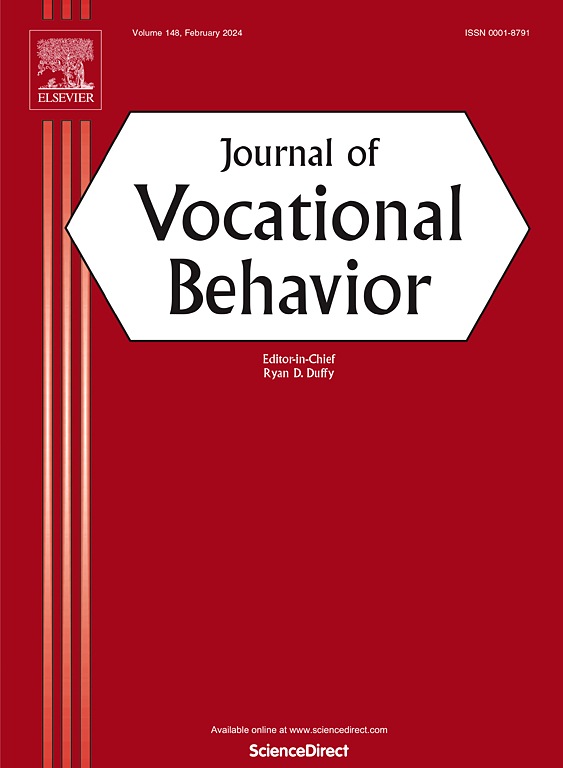Your work passion travels a long way home: Testing a spillover and crossover model of work passion among dual-earner couples
Abstract
In this study, we investigate the spillover-crossover effects of two types of work passion (i.e., harmonious and obsessive) for dual-earner couples. Integrating the job demands-resources theory and the spillover-crossover model, we propose that one partner's harmonious work passion indirectly predicts high work engagement and low work burnout for the other partner through positive affect crossover. Similarly, the partner's obsessive work passion indirectly contributes to low work engagement and high work burnout for the other partner through negative stress crossover. We also suggest that perspective taking of the partner strengthens the proposed positive transmissions and mitigates the negative transmissions. We tested the hypotheses by sampling 129 dual-earner couples in the United States at two time points. Results confirmed that one partner's harmonious work passion and obsessive work passion both had indirect effects on the other partner's work burnout and work engagement via the positive crossover of positive affect and the negative crossover of stress, respectively. Our findings also suggested that the partner's perspective taking significantly shaped the spillover-crossover process between harmonious work passion and the partner's work engagement and burnout. We discuss implications for research and practice as well as future research directions.

 求助内容:
求助内容: 应助结果提醒方式:
应助结果提醒方式:


